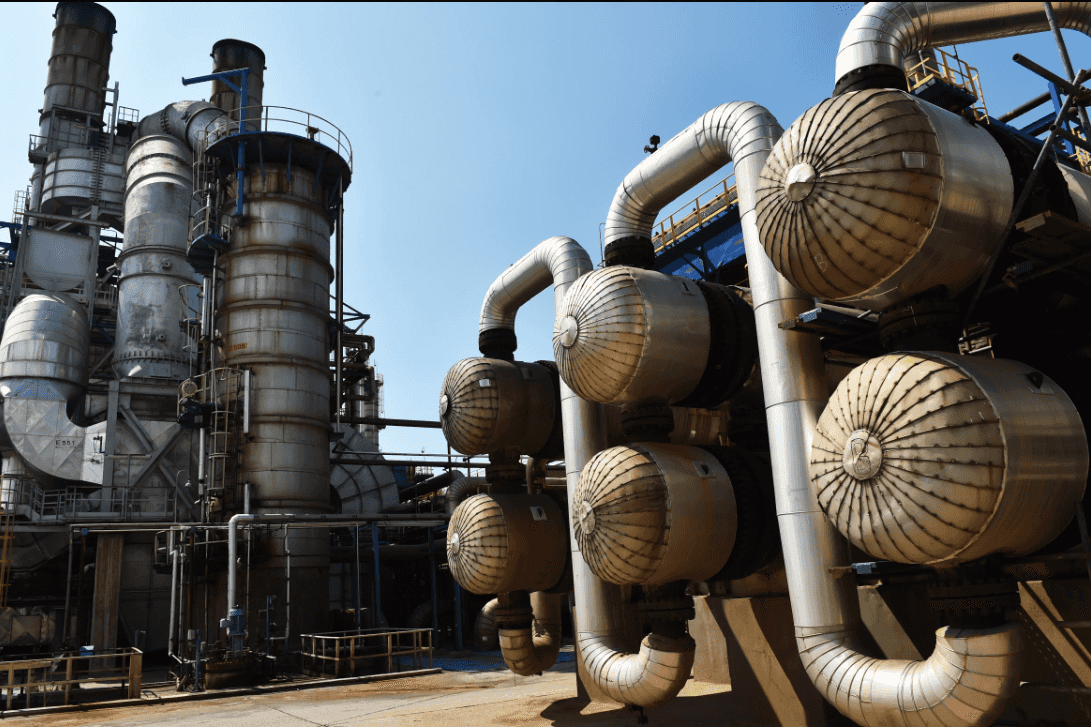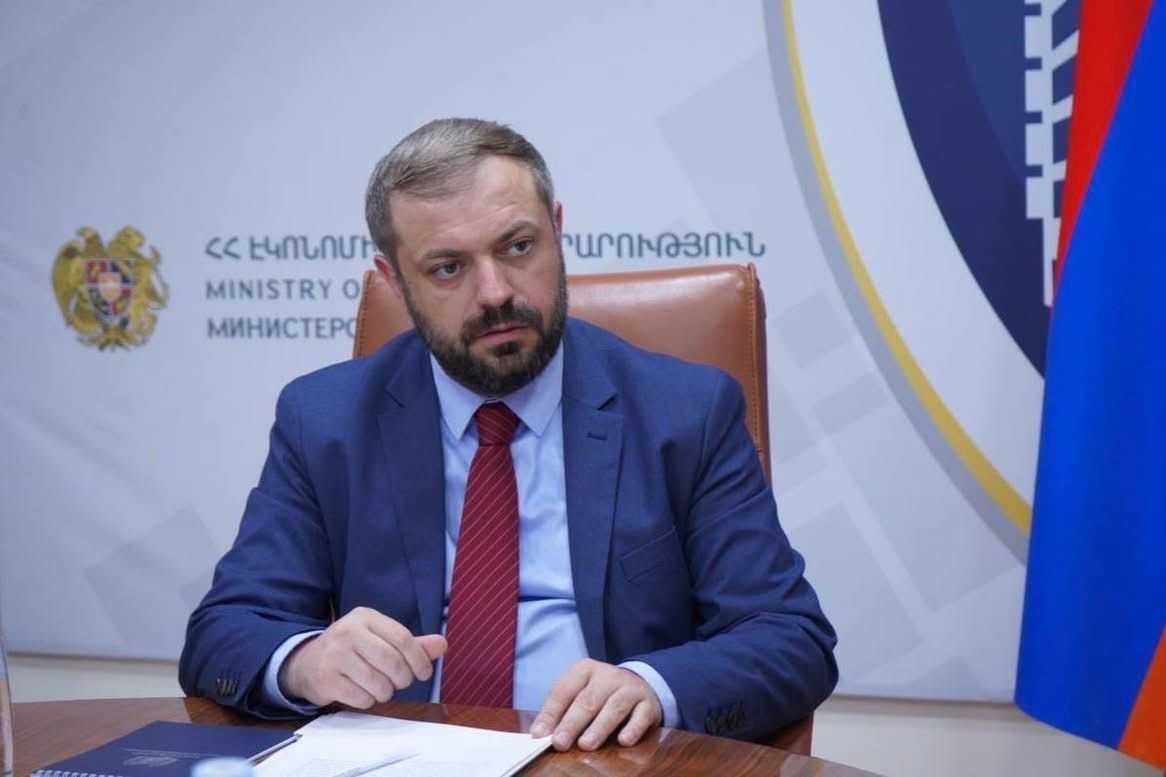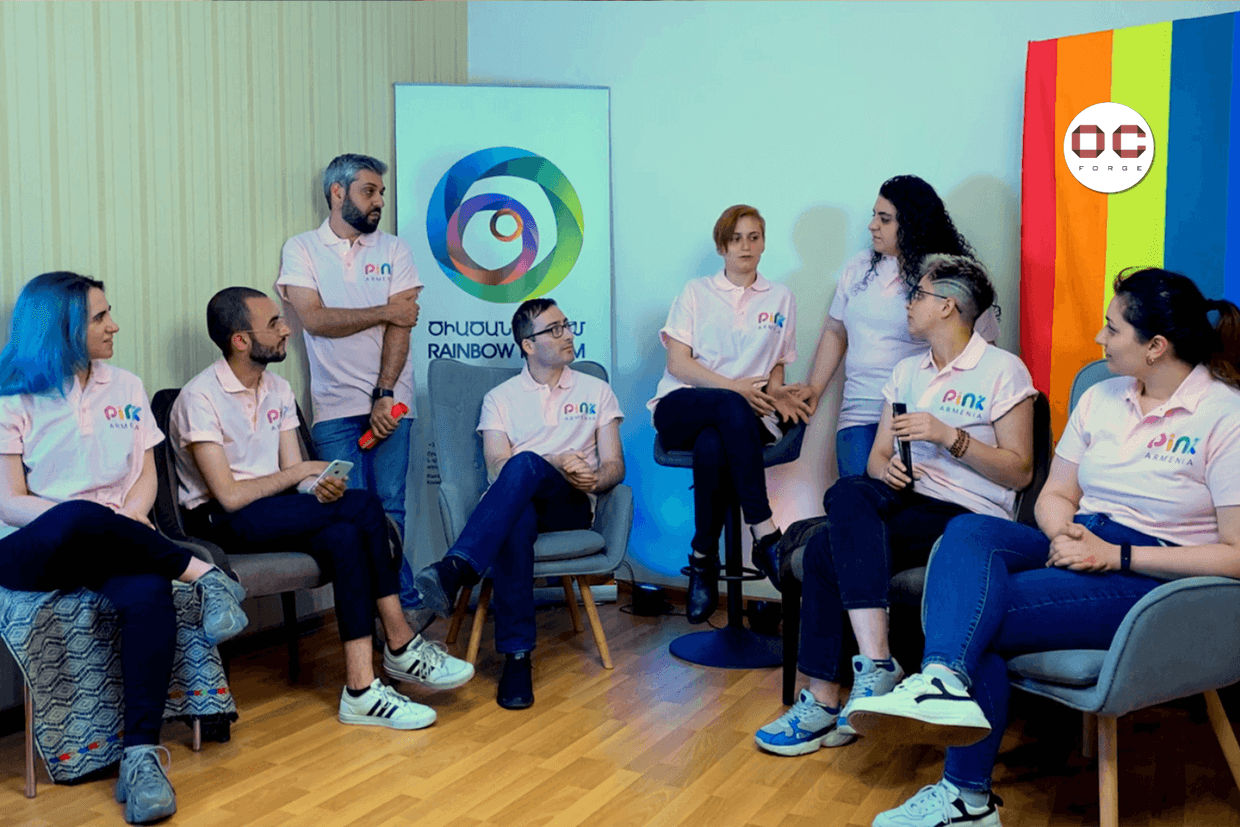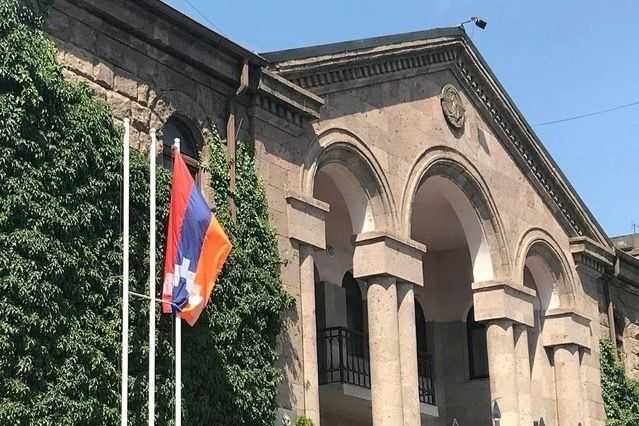

Armenia’s second president Robert Kocharyan has been re-arrested and remanded in custody over the violent dispersal of anti-government protests in 2008 that left 10 people dead.
On 7 December, after five days of deliberations, the Court of Appeal rejected a notion by Kocharyan’s lawyers to release him on bail, upholding the decision of the first instance court.
Ruben Sahakyan, a member of the Kocharyan’s defence team, called the verdict ‘political’ and insisted it was related to upcoming parliamentary elections.
According to his lawyer, Kocharyan did not wait to be visited by the authorities and handed himself in to the National Security Service.
Minutes before, Kocharyan’s press secretary read out his statement in which the former president accused the government of waging a ‘vendetta’ and a ‘cheap and unlawful persecution’ against him and his family. He called the ‘current leader’ a populist unable to rule the country.
‘It is more than obvious that the main organiser of the riots on 1 March 2008 that caused the death of people is trying to wash off the stains of blood and trying to make me responsible’, the statement read.
Kocharyan vowed to continue his ‘political fight’ from prison.
Kocharyan was charged in July by the Special Investigative Service for breaching the constitution in giving a clandestine order to ‘involve the army into a political process’ in dispersing 2008 anti-government protests. The crackdown left eight protesters and two police officers dead.
He was remanded to two months in pre-trial custody but freed on bail less than three weeks later after an appeal court ruled his detention was unlawful.
The appeal court ruled that the General Prosecutor’s Office had failed to convince the court that his pre-trial detention did not contradict the immunity clause in the Armenian Constitution, but did ban him from leaving the country.
Article 140 of the Constitution grants the president immunity from prosecution during and after his term for actions ‘deriving from his or her status’.
Several days after his release, Kocharyan announced his comeback to politics, calling the government under Prime Minister Nikol Pashinyan ‘incompetent’, with no plans for the country’s economy, and no experience dealing with the Nagorno-Karabakh conflict or maintaining relations with Russia.
On 15 November, the prosecution successfully challenged his release on bail, after which the cassation court sent the case back to the court of appeals to be re-examined.
2008 crackdown on post-election turmoil
The case concerns the dispersal of mass protests in Yerevan on 1 March 2008 after Serzh Sargsyan was declared the winner of presidential elections.
The opposition rallied for around 10 days claiming Levon Ter-Petrosyan, the first Armenian President, from 1991–1998, was the rightful winner and demanding a recount.
The initial protests were reportedly authorised by the authorities and were then followed by ‘spontaneous’ protests.
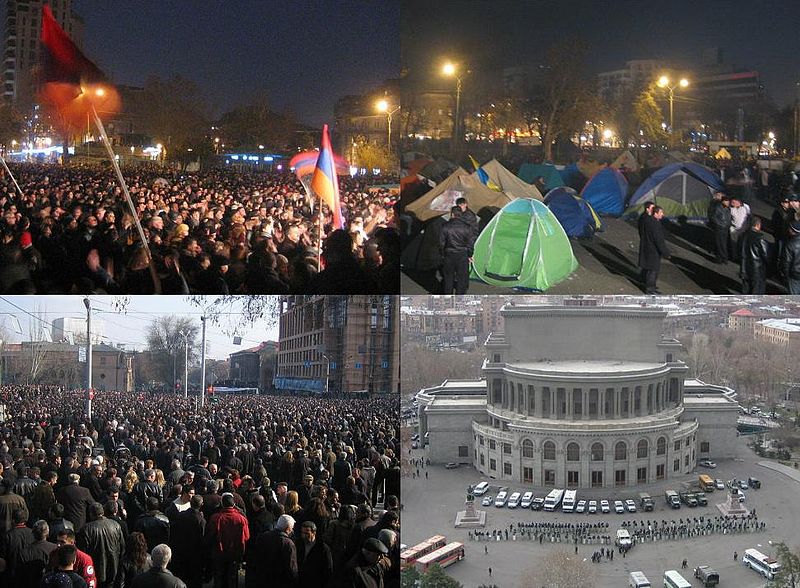
The authorities did not intervene until 1 March, according to allegations against Armenia at the European Court of Human Rights.
Opposition parties claimed the crackdown involved not only civilian law enforcement agencies, but also the army, as outgoing President Kocharyan declared a state of emergency. A number of prominent opposition politicians were arrested in the aftermath.
In March 2018, the then opposition Yelk block, of which Prime Minister Pashinyan is a part, condemned the use of lethal force against protesters.
On 6 March, Pashinyan requested that the Prosecutor’s Office question Kocharyan on his claims, which were reiterated by other members of the Republican Party, that the March protesters were armed and shot at police.
Of the families of the 10 deceased, nine appealed to the European Court of Human Rights (ECHR) in 2011, according to the European Human Rights Advocacy Centre, who is representing them in court. The ECHR has yet to make a judgement on the case.



